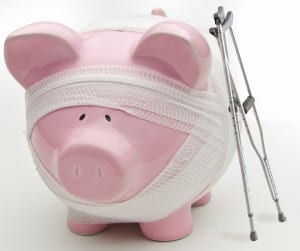Can I Buy a Car While I am Bankrupt?
There is nothing that prevents you from buying a car while you are bankrupt. If you are financing the purchase of a car, you must disclose that you are an undischarged bankrupt. This is the period between the date you filed the assignment in bankruptcy and the date that you are discharge from the bankruptcy process.
Even if you do not disclose this, the company financing the car will find out when they get a credit report on you. Now you have lost credibility which may result in a higher interest rate due to the risk factor or they will cut back on the amount they are willing to loan you. You might have to settle for a less expensive car that does not require a lot of financing. In Ontario, a vehicle is exempt up to a value of $6,600. If the vehicle is required as a “Tool of Trade”, the required exemption is increased to $11,300.
It would be wise to discuss your budget with your Licensed Insolvency Trustee (LIT) at the start of your bankruptcy as the Bankruptcy and Insolvency Act (Directive 11 R2) may result in you having to pay part of your income to your creditors. If someone in your family is giving you the money for the car, they should register a lien on the car for the amount of the money that they are giving you. This will make sure there is no equity that will accrue to your creditors. In the same thought, someone may give you a car while you are bankrupt in order to help you. You do not want your trustee to consider this as an asset for your creditors.
Consider the options:
1. Lease the car in their name and add your name to the insurance. Consider increasing the insurance to give the family members maximum protection.
2. If the vehicle is transferred into your name, the donor could put a lien on it for the value of the car.
There are always options for you to consider. Please discuss them with your trustee.
Contact “Rumanek & Company Ltd” for more information on bankruptcy and debt solutions. Or please fill out the free bankruptcy evaluation form. To learn more please visit our YouTube Channel. Rumanek & Company have been helping individuals and families overcome debt for more than 25 years.



 How Can I Stop Collection Calls?
How Can I Stop Collection Calls? Repair Your Credit Score
Repair Your Credit Score How does the passage of time affect an unpaid account?
How does the passage of time affect an unpaid account?